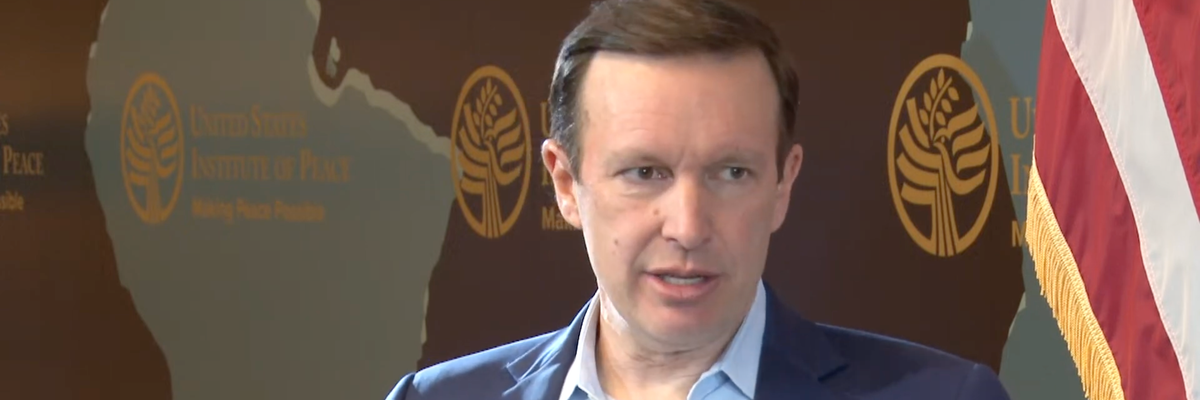Sen. Chris Murphy (D-Conn.) called on the Biden administration to take a stand against Tunisian leader Kais Saied, who has dismantled much of the country’s progress toward liberal democracy since taking office in 2019.
“This administration has made it clear that they want to lead with American values, but at some point in the region of the Middle East and North Africa, you have to walk the walk on democracy, not just talk the talk,” Murphy said in a Tuesday morning talk at the United States Institute of Peace.
“People are noticing that we still stay in business with brutal dictators, we still fund regimes that move away from democratic norms,” Murphy, a prominent Biden ally in the Senate’s appropriations and foreign policy committees, added. “It becomes hard to claim that your priority is democracy and human rights and the rule of law if you don't change your policy when governments start to change their commitment to participatory democracy.”
The senator’s comments come as Saied continues his crusade against the democratic system that Tunisian civil society helped build after toppling long-serving dictator Zine El Abidine Ben Ali in 2011. Among other things, his administration has cracked down on political activism, pushed through a “sham referendum” on a new constitution, and recently arrested several opposition leaders over meetings with U.S. diplomats.
These actions have earned a “markedly milquetoast” response from the international community, as Erin Clare Brown recently noted in New Lines Magazine. The Biden administration has carefully avoided condemning Saied, and the White House’s latest budget request largely maintains regular levels of military and economic aid to Tunisia, which usually totals around $150 million per year.
“The Biden administration has, I think, made a bet on the Tunisian military,” Murphy said, noting later that the country’s military is “trying to integrate itself” into Saied’s new government. “I would argue that we should make a bet on civil society instead.”
For Murphy, that means cutting military support while increasing development aid to the country, which has struggled to get its economy on track since the Arab Spring. He stopped short of calling for a cutoff of all aid to the country, an increasingly popular idea among Tunisia watchers.
The question of how to pressure Saied has gotten increasingly complex as the leader tightens his grip on power. Just last week, Saied threatened to blow up negotiations over a $1.9 billion rescue deal from the International Monetary Fund and insisted that “Tunisians must count on themselves.” (The IMF, for its part, says it's still trying to salvage the agreement.)
Murphy added later in the conversation that the case of Tunisia “suggests that our democracy toolkit is fundamentally broken.”
“Our decision to have more employees of military grocery stores than we have diplomats in the State Department is a really, really bad bet for the United States going forward,” he concluded.
















